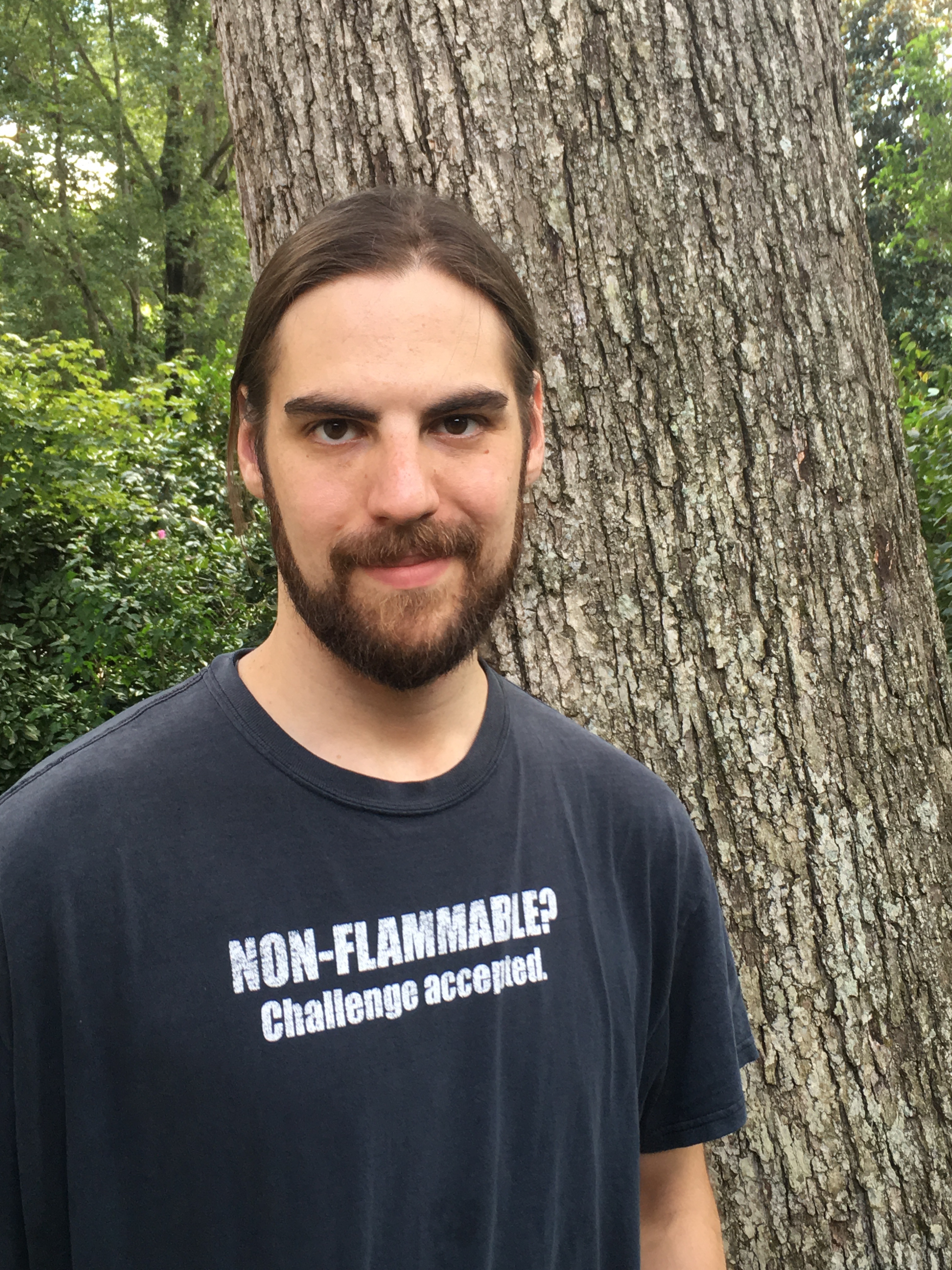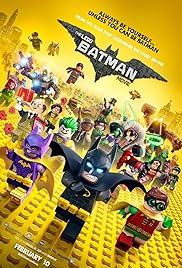Tony started training the new girl the day before the world ended.
It was the third apocalypse that year.
The others had occurred when the dead all rose to fight the frost giants, and then again when the President’s new cyber-security tracking program became sentient and started sending combat drones against registered voters of the opposing party.
Tony was registered with the opposition, and had actually gotten to see the drones up close and personal as they descended on him, but then one of the supers had flown in and saved him, so he’d ended up still having to go to work.
He’d worked at NuremBurger for a little over a year, ever since New York had raised the minimum wage and the shoe store had let him go to cut costs.
The restaurant paid him all right, but he needed more hours. He hadn’t been able to get a real date in ages, since everything he owned now smelled like fry oil, sauerkraut, and chemically-treated pseudo-meats. His boss, Mr. Schulze, was one of those “I’m not racist but—” racists who was forever making people uncomfortable by trying to show how enlightened he was.
Yesterday, his boss had introduced Tony to his newest hire—a cute freckly twenty-something whose figure Tony guessed was half the reason Schulze gave her the job. “Antonio, I want you to meet someone,” Schulze had said in that merry I’m-excited-but-in-control voice that was a staple of white people’s professionalism. Tony had long ago stopped trying to get Schulze to stop calling him “Antonio,” which the balding middle-aged man seemed to think was a display of cultural sensitivity. Tony needed more hours, so he put up with it, and instead of saying “Please, just call me Tony,” he said, “Yes?” at which point he was introduced to “Patricia Strauss, though she prefers we call her ‘Trish,’ don’t you, ‘Trish?’”
He had shaken Trish’s hand. “Tony,” he said, holding her gaze long enough that she wouldn’t catch how he eyed her up and down. Trish had a slim fit figure, which her low cut shirt and skinny jeans accentuated enough for Schulze to honor her preferred nickname. In fact, she had the hard-lined athletic build of a gym rat, and he guessed she was probably into weightlifting or rugby or one of those other tough-people sports rather than the usual pop-music Pilates and celebrity-of-the-month yoga. Her freckly face was halfway between cute and “don’t call me cute,” with her blonde hair pulled back into a short-cropped bun.
“Antonio here is one of my best cooks,” said Schulze. “Antonio, I’m gonna have her watch you cook a bit, okay, and let you two get to know each other some. Meanwhile, I’ve gotta go deal with all the drama out there,” he gestured toward the dining area, where a tangle of stressed-even-for-New-York-rush-hour customers dressed in Stars-‘n’-Stripes T-shirts were shouting.
Tony shook his head at them once his boss’s back was turned. He’d never understood how people could be patriotic. His own father had been a proud US citizen after emigrating from Chile, and had carried a small tourist-sized American flag folded in his wallet until the day he died. But Tony never got it, any more than he got how people worshipped all those American celebrity heroes, All-Star and the Twelve Stripes, flying about to rescue babies and fight aliens on TV. They weren’t any different than any of the other televangelist Congressmen or born again reality-TV-stars he’d seen, except they had powers, which supposedly symbolized the American dream. Hearing a bunch of crazy tourists make a scene while wearing shirts with All-Star and his super-groupies annoyed Tony almost as much as the American Heartland-types who came all wide-eyed to stare up at the Statue of Liberty and Times Square as if the crass monuments still had meaning.
The real America was the same here as anywhere else: flipping burgers, selling Chinese-made clothes, mowing lawns, and doing real work while just barely paying the bills. The only difference was that here you could occasionally catch a glimpse of the supers flying over Wall Street to keep the suits there safe from the shitstorm that rained down on everyone else.
He tried to drown out the noise of a particularly vocal banshee-tourist and focus on training the new girl.
“So, is this your first cook job? What all do you know?” Tony asked, flipping two of the patties sizzling on the griddle.
“No. I’ve had a number of them,” she said, and began listing restaurants ranging from a high-end steak joint to a few chain stores that made McDonalds look like fine dining. Altogether, she named eight different restaurants before trailing off.
“Jesus, that’s a lot! How many jobs do you work at once?” Tony asked her. She couldn’t be more than twenty-five, and yet she’d worked at more places than he had.
“I spend a lot of time supporting my family. It’s made me change jobs a lot. And, I mean, you know how it is in this economy,” she said, fidgeting and looking away.
He agreed, and they got talking as he taught her how to defrost the burger patties, fry the “Frank Fries”TM, and coached her on the subtleties of the menu’s German dishes.
Eventually the tourists got too loud, and Tony couldn’t help but mumble “fucking cape-chasers” a little too audibly.
“What?” said Trish, giving him a look. “They’re not so bad. And besides, it’s not like the supers don’t serve and protect us.”
“No, they serve and protect you! People like you. The rest of us get lucky sometimes, but pale skin and good looks go a long way toward getting saved. I grew up being stopped and frisked and profiled by cops and capes alike every day on my way to school, and not much has changed since I became an adult. So no, I’m not a fan, and don’t buy into the whole line about them keeping us safe,” Tony said.
“Oh, come on! First, there are plenty of supers of color! Time Cube and Conqueroot and Black Turner, for starts, and oh, Olmech is Mexican! And second, don’t you watch the news? Tomorrow everything could be gone! Our reality is about to be invaded, and it’s the supers who are keeping us safe! Without them, we might not even be here!” Trish fumed, furious and passionate.
It was a more serious reaction than Tony had been expecting.
He took a breath before responding, collecting himself. “Look, I don’t like talking politics at work, okay. But since you care so much, let me put a few things out there. I don’t care about supers, whatever their color. It’s just not my thing, any more than I care about the Kardashians or Brangelinas or any other celebrities. They don’t affect me, and for all the tragedies they miss, the world keeps turning. They don’t change the things I go through, y’know. I’ve got rent and child support to pay and I’d like to get through a day without being told some dumb shit about how Olmech being Mexican should be important to me. I’m Mapuche, not Mexican.” He sighed. “Now, can we just get back to work?”
The rest of the day at the restaurant progressed with only minor incidents. Trish overcooked a plate of spätzle and a tourist ripped off their server with a 2% tip. When Tony left, he agreed to help train Trish some more the next day.
On the train home he squeezed into a seat between a Hasidic couple speaking Yiddish and a trio of over-pierced teenagers excitedly discussing the news that tomorrow the Twelve Stripes would join forces with the other supers to help repel an incursion from the fifth dimension (or was it the fifth sphere of hell? He couldn’t tell from how they babbled on in nonstop manic slang). He remembered being that age, and actually being excited by the supers and the big events of the world, as though anything ever changed. That was before his uncle had been brutalized for an unpaid traffic ticket, before his cousin had been shot while cosplaying, before Marianne had taken their son.
Until Marianne, he could deal with it. He got that the world just wasn’t fair. He had no heroes—not capes, not politicians, not entertainers—yet he still took care of things. But when she left him for her new job doing IT for All-Star and the Twelve Stripes, she’d taken Dante.
She’d taken their son.
Tomorrow—Friday—the world would end.
And so what? His world ended every Friday, when he got his paycheck and there was that little bit missing for child support—when all he wanted was to actually be there to support his child in person. On Thursdays, he should’ve gotten to see Dante after work. It was his visitation day, and he should have gotten that day—all of it. But Schulze always changed the schedule at the last minute so he had to work until the mid-afternoon. The last time he’d argued with Schulze about this, the man had threatened to fire him, and cut his hours so he only worked Thursdays for the next two weeks.
Normally, he’d be picking Dante up from daycare on a day like this, but Marianne wouldn’t let him “endanger himself spending an evening with his damn burger flipper of an absent father when there are things going on in the world.” He’d called, texted, Facebooked, and Skyped her, and she’d still denied him, which meant there was pretty much nothing he could do about it since she got off before him. Dante was already with his mom, and Tony didn’t have the codes into her apartment building. Maybe it was better for Dante, being stable and all. What did he need with a father who could see him only once a week?
There was that old saying about how the more things changed, the more they stayed the same. Well, the more they stayed the same, the worse they got, but at least Dante’s mom might be able to shield him from some of that.
Tony got off at his stop, walked the three blocks from the station to his apartment, and settled down with a beer and leftover Chinese takeout as he watched old episodes of Sabado Gigante on his tablet. Normally, he’d spend Thursdays cooking a special dinner to share with Dante, asking about his week, and then (if the boy had done his homework) they’d watch cartoons together on the tablet, but tonight, he just didn’t want to think.
As a kid, that’s what TV was for. There weren’t so many end-of-the-world scenarios back then. The US was a safe country, “the safest America” his father used to say, as they exported all their misery to the other Americas, and because their heroes really did keep the world safe. And while he didn’t quite agree, he at least saw his father’s point.
That was back before the Twelve Stripes had changed their lineup. Back when the old All-Star—the first All-Star—championed the team with twelve other New York heroes in their brightly colored costumes, patrolling the neighborhoods and stopping the real crimes they saw every day. But then there’d been that one apocalypse where the first All-Star had been ripped in half above the city, raining blood and guts and cosmic starshine down on everyone. After that, everything had changed. Tony had decided life was too short to waste, and enrolled to take classes at CUNY, studying graphic design. But then work got in the way, and he and Marianne were always fighting, and there was Dante to think about. It wasn’t long before dreams of a career with computers had been traded for contentment selling shoes, and not much longer ‘til he was—as Marianne put it—that “damn burger flipper of an absent father.”
Tony’s Sabado Gigante marathon was interrupted when the screen momentarily froze to allow a small pop-up window—the sort of pop-up that appeared for storm warnings and bomb threats and invading armies of North Korean lobotomechs.
He closed the pop-up, continued watching his show, and fell asleep on the couch with his beer still unfinished.
When he awoke the next morning, the beer bottle was empty and the tablet had drunk itself to an early death.
He cursed, bemoaning another loss he couldn’t afford. He got ready for work, needing to hurry to make the lunch shift and help train the new girl. Outside his window, he heard screaming, the honking of New York traffic with the volume turned up, and an eerie humming sound he couldn’t place. He ignored them, buttoning on his pants and grabbing a pack of Oreos to eat on the way to work.
Outside the streets were filled bumper-to-bumper with drivers honking and shouting. Some people had gotten out of their vehicles to look and see how bad the traffic was. Others had just gotten out and fled on foot. The skies above were black—not overcast, but altered into a rippling obsidian lake that bent slightly inward like some cosmic meniscus.
But the trains worked just fine, despite delays. As he rode to work, he tried not to think that this might actually be the end of everything (or at least the end of him). He should be spending the day with Dante, not going to work. All he wanted to do was sit with his son on his lap watching cartoons and hear Dante’s laugh. But if tomorrow came, he’d need his paycheck.
Even if it didn’t, the collection agencies would still hound whatever was left of his corpse, terrorizing Marianne and Dante to collect on his debts.
The train emerged from a tunnel, and he saw that a black rain had started, inky drops splattering against the train car. Above, the dark orb had swollen, engorging into the eye of some malevolent god watching them at the hour of Judgment.
He got off at his stop, trying not to look up, and when he arrived at NuremBurger, he found Schulze, Trish, and a pair of servers already there. He greeted them, ignored Schulze’s comments asking where he’d been (like the answer wasn’t obvious), and began the day’s work, showing Trish how to use the fryer and prep the stove and the two dozen other basic tasks to start the day. She worked diligently and learned quickly, and at one point he made the mistake of praising her with a “good work, but you can take it easy. We aren’t saving the world, just working the kitchen.” She spent the next hour nattering on about how hard supers worked to save the world, and how the Fifth Dimensionalists had undermined everything with their chronaliminal engineering by bringing on an apocalypse that chronocops like Time Cube and Panthea said wasn’t due for three centuries. The girl was a cape-chaser alight, and rambled about superteams like the Twelve Stripes, U-Knighted, and the Repairmen. Then she embarked on a tangent about the hero Numen, how his suffering was underappreciated and no one understood him like she did. He remembered being in high school, watching girls obsess over capes and boybands, and figured it was just her age. Thankfully, only four customers came before noon, so it was a slow day.
Then as he finished sizzling a WurstBurger, there was a strange keening and the burger began to shake and–
The kitchen exploded!
And time slowed.
Tony was knocked from his feet as the floor split. The ceiling imploded and he rose to meet it. Gas pipes splintered in fiery gouts. Pain raked his arm—flying debris—and as flaming cutlery and shattered cinderblocks enveloped him, he realized this was the end.
He thought of Dante.
And then a force enfolded him, pressing close to him with a warm forcefulness and a moment later, it was over.
A super had him.
He looked up, seeing the restaurant in ruins. Two supers—one he recognized and one he didn’t—were embattled with a horde of what appeared to be car-sized insects, like spiked arachnids. A woman dressed like a Celtic warrior in blue-glowing warpaint bashed her fists through carapaces, riding through the wreckage aback a shining horse-sized battle-pig. Tony vaguely recalled this woman was Coventina, some British goddess reincarnate and involved in a number of controversial transatlantic security arrangements established in the Thatcher years. The other super wore too-tight black spandex and was gratuitously backflipping over the gargantuan death beetles and shooting bone spikes from his fingertips. The spikes pierced their hides, shattering shells amidst spurts of viscous gore.
Above, the sky had opened into a gaping mouth that consumed half the space between horizons, fangs and tentacles and more bugs drooling from it toward the earth.
Sirens blared. People screamed. Another super flew overhead, riding a nimbus of what Tony guessed must be nanomachines, black nanite clouds extending from his palms to catch falling debris. Groups of heroes soared high above, wrestling with tentacles the size of skyscrapers, bright blasts of light and flame flashing from their fists. A blurred streak whizzed through the streets, clearing the roads of debris as an unidentified speedster shot past, and moments later, the sirens grew louder, emergency vehicles traversing the now-clear streets.
Vaguely, Tony realized he didn’t know who had saved him. He looked around, saw Schulze standing with a perplexed look, one server beside him and both splattered with gore.
But there was no sign of his rescuer.
Somewhere in the debris of what used to be the NuremBurger kitchen (and was now a flaming outdoor garbage pile being used for gladiatorial combat), somewhere under the broken brickwork and metal shards and scattered contents of the walk-in freezer, was Trish.
With horror, he looked back up at the chunky red stains smeared across Schulze, and wondered how much of that could be her. Schulze opened his mouth and closed it again wordlessly. The server cried, shaking.
Coventina leapt from her mount and delivered a roundhouse kick to the last of the bugs, catapulting its broken body into the horizon. Then she remounted and rode away toward some other threat, her companion already gone.
A shadow fell across Tony, and he looked up.
Floating above him was another hero he recognized—All-Star’s teen sidekick, Americana. She just hovered there for a second, her muscular slim frame exaggerated by the red-white-and-blue uniform that seemed cut to emphasize more assets than just her patriotism. She flashed him a familiar freckle-faced smile, and he smiled back, waving to show his gratitude.
Then she was off, darting into the air without any regard for Newton’s Laws. Somewhere above the rooftops, he saw her join with a group of a dozen other patriotically dressed supers helmed by what even Tony could not mistake for anyone other than All-Star. As one, the group shot straight up toward the open jaws above.
Typical heroes.
Still, looking about him, he could not deny the immensity of what was happening. The world was a blur of screams and debris and mangled bodies. The heavens had been swallowed by hell.
He realized what he needed to do. What a real hero would do—not some steroids-and-cosmic-power super— but the kind of hero the world actually needed in times like this.
“Mr. Schulze!” he shouted. The old man stared at him, blinking in half-recognition. The man was probably in shock. Hell, Tony probably was too, but it’s not like it’d be the first time. “Mr. Schulze!” he repeated, louder.
“What is it, Tony?” Schulze asked, and Tony realized it was the first time the man hadn’t called him “Antonio.”
“I’m going,” Tony said.
“What?”
“I’m getting out of here.”
“You can’t,” Schulze said, his focus apparently clearing. “The police. They’ll need to interview you, to take a statement about the damages.”
“The police have better things to do right now,” he said, gesturing toward the events unfolding all around them. “Besides, there’s somewhere I need to be right now.”
“You need to be here. This is your job!” Schulze shouted, sounding hysterical, as though if Tony left now, then he truly would have lost everything.
“My job is to be a dad. My boy needs to know there’s a real hero there to look after him when the world is falling apart.”
With that, Tony turned his back on the older man, walking through the chaos to find Dante.
© 2017 by Theo Kogod
Author’s note: Do you remember that scene at the end of the first Avengers film where the heroes all get schawarma? It’s a great scene, but what was going on in the personal lives of the restaurant workers that they stayed at work amidst an alien invasion blowing up the city? And what do people grow accustomed to in a world with such horrors and wonders as superhero comics present? This story explores some possible answers to those questions while showcasing the struggles (both absurd and very familiar) of life in the shadow of superheroes.
 Theo Kogod is a teacher, scholar, wanderer, and the Resident Writer for 3 Feet Left. He has spent time living in Greece, Japan, and the United States. He currently resides in North Carolina with his two cats, an amazing spouse, and a small mountain of books.
Theo Kogod is a teacher, scholar, wanderer, and the Resident Writer for 3 Feet Left. He has spent time living in Greece, Japan, and the United States. He currently resides in North Carolina with his two cats, an amazing spouse, and a small mountain of books.
If you enjoyed the story you might also want to visit our Support Page, or read the other story offerings.
 Shrek The Musical is a theater version of the 2001 CG Dreamworks comedy adventure Shrek. As with the movie, the play is about the ogre Shrek who lives a contented secluded life in a swamp, but his solitude is interrupted with an influx of fairytale creatures who have been evicted by Lord Farquad to transform his kingdom into his perfect image of a kingdom. When Shrek goes to confront Farquad (meeting Donkey, a talking donkey on the way) he is coerced into mounting a rescue mission of Princess Fiona from a dragon-guarded tower to bring her back to be Farquad’s bride.
Shrek The Musical is a theater version of the 2001 CG Dreamworks comedy adventure Shrek. As with the movie, the play is about the ogre Shrek who lives a contented secluded life in a swamp, but his solitude is interrupted with an influx of fairytale creatures who have been evicted by Lord Farquad to transform his kingdom into his perfect image of a kingdom. When Shrek goes to confront Farquad (meeting Donkey, a talking donkey on the way) he is coerced into mounting a rescue mission of Princess Fiona from a dragon-guarded tower to bring her back to be Farquad’s bride.

 This summer at the Science Museum of Minnesota, the touring exhibit was The Science Behind Pixar. There are sections of the exhibit for every stage of the production from concept art, storyboarding, clay modeling, modeling, rigging, motion capture, rendering, and lighting.
This summer at the Science Museum of Minnesota, the touring exhibit was The Science Behind Pixar. There are sections of the exhibit for every stage of the production from concept art, storyboarding, clay modeling, modeling, rigging, motion capture, rendering, and lighting. 1984 is easily the most well-known dystopian novels, and one of the most famous science fiction novels in history (whether or not Orwell would call it science fiction). The book was written by George Orwell, and published in 1949. Almost seventy years later, the political ideas in the story are as relevant as ever, and many of the concepts have since entered everyday vernacular even when those speaking are not familiar with the book itself. .
1984 is easily the most well-known dystopian novels, and one of the most famous science fiction novels in history (whether or not Orwell would call it science fiction). The book was written by George Orwell, and published in 1949. Almost seventy years later, the political ideas in the story are as relevant as ever, and many of the concepts have since entered everyday vernacular even when those speaking are not familiar with the book itself. .
 1. The Vision, Volume 1: Little Worse Than A Man, written by Tom King, illustrated by Gabriel Hernandez Walta (Marvel)
1. The Vision, Volume 1: Little Worse Than A Man, written by Tom King, illustrated by Gabriel Hernandez Walta (Marvel) 2. Ms. Marvel, Volume 5: Super Famous, written by G. Willow Wilson, illustrated by Takeshi Miyazawa (Marvel)
2. Ms. Marvel, Volume 5: Super Famous, written by G. Willow Wilson, illustrated by Takeshi Miyazawa (Marvel) 3. Black Panther, Volume 1: A Nation Under Our Feet, written by Ta-Nehisi Coates, illustrated by Brian Stelfreeze (Marvel)
3. Black Panther, Volume 1: A Nation Under Our Feet, written by Ta-Nehisi Coates, illustrated by Brian Stelfreeze (Marvel) 4. Saga, Volume 6, illustrated by Fiona Staples, written by Brian K. Vaughan, lettered by Fonografiks (Image)
4. Saga, Volume 6, illustrated by Fiona Staples, written by Brian K. Vaughan, lettered by Fonografiks (Image) 5. Monstress, Volume 1: Awakening, written by Marjorie Liu, illustrated by Sana Takeda (Image)
5. Monstress, Volume 1: Awakening, written by Marjorie Liu, illustrated by Sana Takeda (Image)
 It’s fun to get to try out the other side of the gameplay, although it’s certainly not an exact reversal–though the plumber is fast and agile, he’s also very predictable–always reacting to you in exactly the same way, and so the key to most of the levels to figure out that pattern and exploit it–if he automatically jumps over you, then try to place yourself so he will jump off a cliff, and that sort of thing.
It’s fun to get to try out the other side of the gameplay, although it’s certainly not an exact reversal–though the plumber is fast and agile, he’s also very predictable–always reacting to you in exactly the same way, and so the key to most of the levels to figure out that pattern and exploit it–if he automatically jumps over you, then try to place yourself so he will jump off a cliff, and that sort of thing.
 The Lego Batman movie is a comedy/action computer animated movie by Warner Bros. Pictures released in February 2017. It is a followup, if not exactly a sequel, to The Lego Movie (
The Lego Batman movie is a comedy/action computer animated movie by Warner Bros. Pictures released in February 2017. It is a followup, if not exactly a sequel, to The Lego Movie (